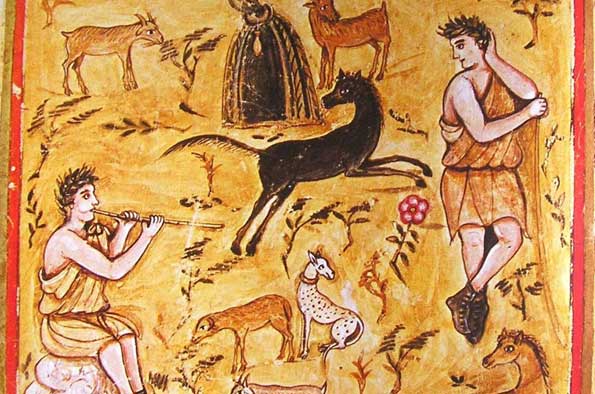
CANCELLED Poetry, Philosophy, and Power in Virgil’s Georgics (Nicholas Freer, University of Iceland)
Add this event to my calendar
Click on "Create a calendar file" and your browser will download a .ics file for this event.
Microsoft Outlook: Download the file, double-click it to open it in Outlook, then click on "Save & Close" to save it to your calendar. If that doesn't work go into Outlook, click on the File tab, then on Open & Export, then Open Calendar. Select your .ics file then click on "Save & Close".
Google Calendar: download the file, then go into your calendar. On the left where it says "Other calendars" click on the arrow icon and then click on Import calendar. Click on Browse and select the .ics file, then click on Import.
Apple Calendar: The file may open automatically with an option to save it to your calendar. If not, download the file, then you can either drag it to Calendar or import the file by going to File >Import > Import and choosing the .ics file.
The health and wellbeing of our students, staff and visitors is our highest priority and while we realise that the cancellation of events will cause some inconvenience and disappointment, this temporary measure is aimed at ensuring that our response to the current situation remains responsible and informed by the latest public health advice and expertise.
We regret that the University cannot be held liable for any loss or damage, including but not limited to travel and accommodation costs, arising from this event cancellation.
*
The utility of poetry was widely acknowledged by Roman authors of the late Republic and early Empire. The Augustan ideal of the vates, in particular, encapsulated “the belief that the poet has a serious contribution to make to the progress of his society, and that poetry and music have a regulatory and civilising effect” (Hardie 1986, 16). While Virgil at times also celebrates the importance of the poet’s task, these passages are regularly offset by others that appear to cast doubt upon the value of his art (see e.g. Putnam 1970; Johnson 1976, 99-114; Boyle 1986; Perkell 1989).
This paper argues that Virgil’s shifting representation of the poet in the Georgics was informed by Epicurean attitudes towards poetry, most notably the works of his teacher Philodemus, who called into question the moral utility of poetry and its efficacy as a mode of didaxis. Focusing on the didactic narrator’s relationship to Octavian, Virgil’s depiction of the archetypal poet Orpheus, and his selfrepresentation in the sphragis at the end of book 4, the paper aims to shed new light on Virgil’s conception of the nature and function of poetry. In the process, it reasserts the significance of philosophical intertexts within Virgil, while contributing to the broader ongoing debate about the relationship between form and function, message and medium in the Georgics.
This event is part of the Work in Progress Seminar Series.
